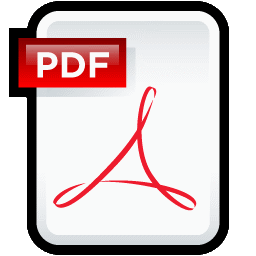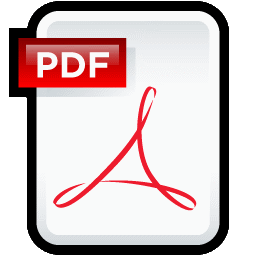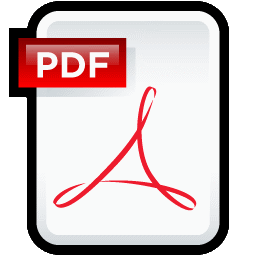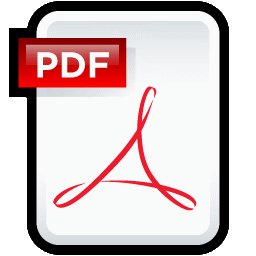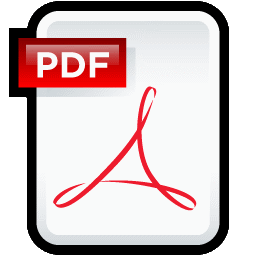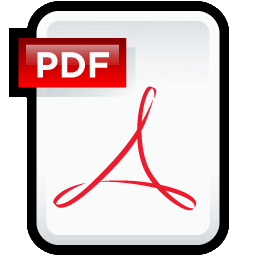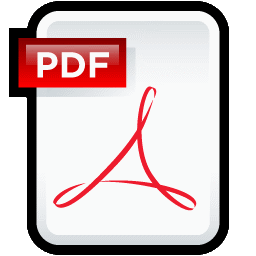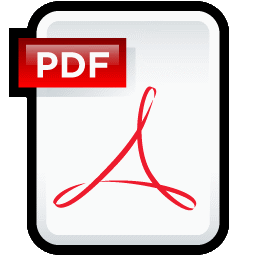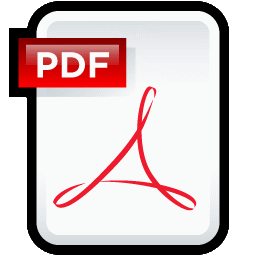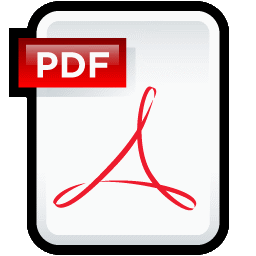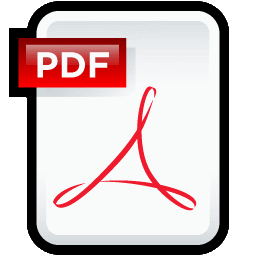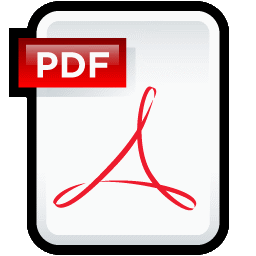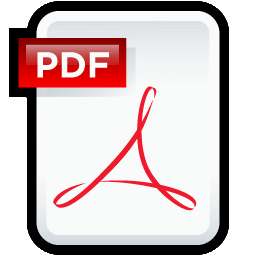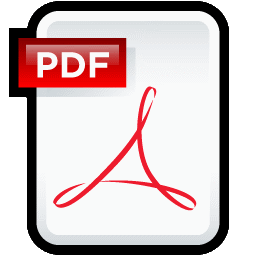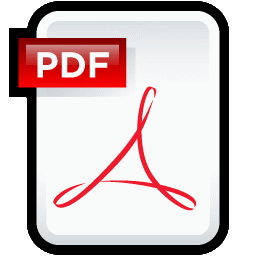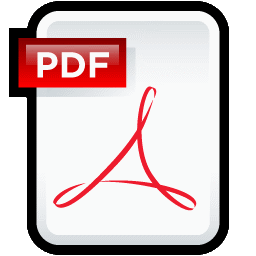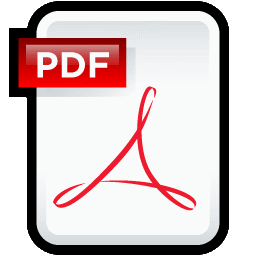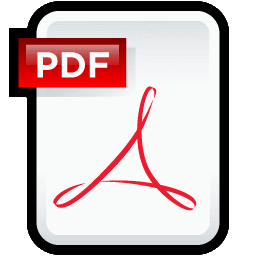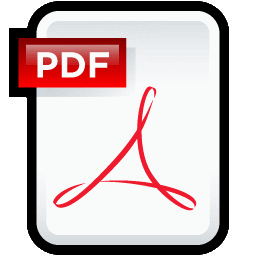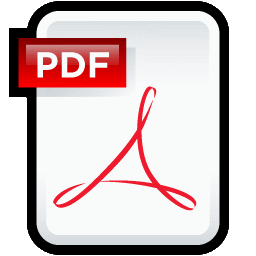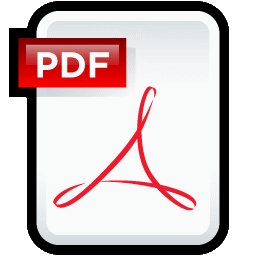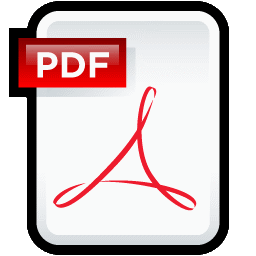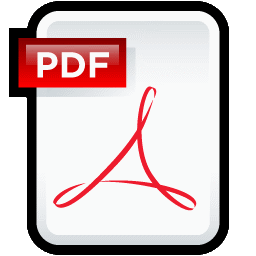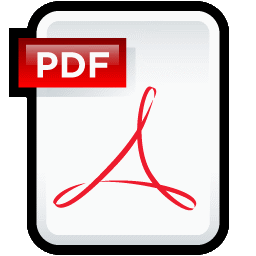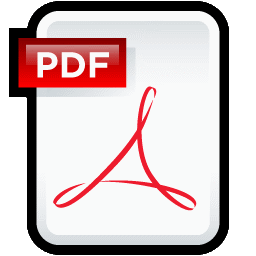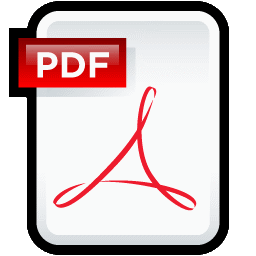FDA Blood Guidances
73 files
-
Changes to an Approved Application: Biological Products" Human Blood and Blood Components Intended for Transfusion or for Further Manufacture
By Cliff
(This document finalizes the draft guidance of the same titled dated June 2013 and supersedes the guidance document of the same title dated July 2001.) - 12/2014
Docket Number: FDA-1999-D-3528 Issued by: Center for Biologics Evaluation and Research We, FDA, are providing you, manufacturers of licensed Whole Blood and blood components intended for transfusion or for further manufacture, including Source Plasma, with recommendations intended to assist you in determining which reporting mechanism is appropriate for submission of changes to an approved Biologics License Application (BLA) in accordance with the requirements under Title 21 of the Code of Federal Regulations (CFR) 601.12 (21 CFR 601.12), including recommendations in connection with the applicability and content of comparability protocols under 21 CFR 601.12(e) and labeling changes under 21 CFR 601.12(f).
0 downloads
(0 reviews)0 comments
Submitted
-
Collection of Platelets by Automated Methods
By Cliff
Docket Number: 2005D-0330 Issued by: Center for Biologics Evaluation and Research This guidance provides you, blood establishments, and FDA staff with revised recommendations for the collection of Platelets by automated methods (plateletpheresis). This guidance is intended to help you ensure donor safety and the safety, purity, and potency of Platelets collected by an automated blood cell separator device. For the purpose of this document, Platelets collected by automated methods and resuspended in plasma will be referred to by the product name "Platelets, Pheresis."
0 downloads
(0 reviews)0 comments
Submitted
-
Compliance Policy Regarding Blood and Blood Component Donation Suitability, Donor Eligibility and Source Plasma Quarantine Hold Requirements
By Cliff
Docket Number: FDA-2022-D-0588 Issued by: Center for Biologics Evaluation and Research This guidance addresses certain requirements that apply to blood establishments that collect blood and blood components, including Source Plasma. Specifically, the guidance explains the conditions under which FDA does not intend to take regulatory action for a blood establishment’s failure to comply with certain requirements in Title 21 of the Code of Federal Regulations 630.30 (21 CFR 630.30) regarding donation suitability; 21 CFR 630.10(c)(2) regarding donor eligibility; and 21 CFR 640.69(f) regarding quarantine hold for Source Plasma.
This guidance finalizes the draft guidance of the same title, dated May 2022, and supersedes the guidance entitled, “Alternative Procedures for Blood and Blood Components During the COVID-19 Public Health Emergency; Guidance for Industry,” dated April 2020.
1 download
(0 reviews)0 comments
Submitted
-
Considerations for the Development of Dried Plasma Products Intended for Transfusion
By Cliff
Docket Number: FDA-2018-D-3759 Issued by: Center for Biologics Evaluation and Research We, FDA, are providing recommendations intended to assist manufacturers, sponsors, and applicants developing dried plasma products intended for transfusion in order to facilitate the availability of safe and effective dried plasma products in the United States (U.S.). This guidance provides considerations for the successful development and licensing of dried plasma products and for the approval of devices used to manufacture dried plasma. The guidance includes recommendations on optimal sources of input plasma; manufacturing and product quality, including product characterization; packaging and reconstitution; clinical studies; and device submissions. This guidance finalizes the draft guidance of the same title dated October 2018.
0 downloads
(0 reviews)0 comments
Submitted
-
Content and Format of Chemistry, Manufacturing and Controls Information and Establishment Description Information for a Biological In Vitro Diagnostic Product
By Cliff
Docket Number: 98D-0964 Issued by: Center for Biologics Evaluation and Research In the Federal Register of July 8, 1997 (62 FR 36558), the Food and Drug Administration announced the availability of Revised Form FDA 356h Application to Market a New Drug, Biologic, or an Antibiotic for Human Use This document provides guidance on the content and format of information to be submitted to the Chemistry, Manufacturing, and Controls (CMC) section and Establishment Description section of a License Application for a biological in vitro diagnostic (IVD) product.
0 downloads
(0 reviews)0 comments
Submitted
-
Determining Donor Eligibility for Autologous Donors of Blood and Blood Components Intended Solely for Autologous Use - Compliance Policy
By Cliff
Docket Number: FDA-2016-D-2071 Issued by: Center for Biologics Evaluation and Research This guidance addresses the regulatory requirements for determining donor eligibility that apply to establishments that collect blood and blood components (blood establishments) intended solely for autologous use. On May 22, 2015, in order to better assure the safety of the nation’s blood supply and to help protect donor health, FDA finalized its revision of the applicable requirements for blood establishments to test donors for infectious disease, and to determine that donors are eligible to donate and that donations are suitable for transfusion or further manufacture (Requirements for Blood and Blood Components Intended for Transfusion or for Further Manufacturing Use, 80 FR 29842 (donor eligibility rule)1). The donor eligibility rule includes requirements related to current good manufacturing practice, donation testing, donor eligibility, and donation suitability (in 21 CFR Parts 606, 610, 630, and 640). It became effective on May 23, 2016.2
0 downloads
(0 reviews)0 comments
Submitted
-
Donor Deferral Due to Red Blood Cell Loss During Collection of Source Plasma by Automated Plasmapheresis
By Cliff
Docket Number: FDA-2022-D-0500 Issued by: Center for Biologics Evaluation and Research This memorandum addresses the temporary deferral of Source Plasma donors who have lost red blood cells due to technical difficulties during an automated plasmapheresis procedure.
0 downloads
(0 reviews)0 comments
Submitted
-
Donors of Blood and Blood Components: Notification of Donor Deferral, Small Entity Compliance Guide
By Cliff
Docket Number: FDA-1998-N-1016 Issued by: Center for Biologics Evaluation and Research The Food and Drug Administration (FDA) has prepared this guidance in accordance with section 212 of the Small Business Regulatory Enforcement Fairness Act of 1996 (Public Law 104-121). According to the Small Business Administration, a "small business" within the blood industry is an enterprise with $10 million in average annual receipts.1 This guidance is intended to help you, a small entity that collects blood or blood components for transfusion or for further manufacturing (blood or blood components), better understand and comply with the regulatory framework set forth in Title 21 Code of Federal Regulations 630.6 (21 CFR 630.6).
0 downloads
(0 reviews)0 comments
Submitted
-
Efficacy Studies to Support Marketing of Fibrin Sealant Products Manufactured for Commercial Use
By Cliff
Docket Number: 97D-0528 Issued by: Center for Biologics Evaluation and Research This document pertains to commercially-produced fibrin sealants composed of purified, virus-inactivated/removed human fibrinogen and human or bovine thrombin, with or without added components such as virus-inactivated/removed human factor XIII and/or aprotinin. A number of such products are currently available in Europe and Canada as hemostasis agents. Although manufacturers and clinicians in the United States have been actively engaged in the development and testing of fibrin sealants, only one fibrin sealant product has been licensed in this country. This document outlines the agency's current position with regard to clinical data used to support licensure of safe and effective commercially-produced fibrin sealants in the United States.
0 downloads
(0 reviews)0 comments
Submitted
-
FDA Recommendations Concerning Testing for Antibody to Hepatitis B Core Antigen (Anti-HBc)
By Cliff
Docket Number: FDA-2013-S-0613 Issued by: Center for Biologics Evaluation and Research The Food and Drug Administration (FDA) is now regulating as licensed biologic products test kits that detect total (IgG and IgM) antibody to hepatitis B core antigen (anti-HBc). After 31 March 1991 anti-HBc kits shipped in interstate commerce and labeled for use in screening blood and blood products must bear a U.S. license number.
1 download
(0 reviews)0 comments
Submitted
-
For the Submission of Chemistry, Manufacturing and Controls and Establishment Description Information for Human Plasma-Derived Biological Products, Animal Plasma or Serum-Derived Products
By Cliff
Docket Number: 98D-0007 Issued by: Center for Biologics Evaluation and Research In the Federal Register of July 8, 1997 (62 FR 36558), the Food and Drug Administration (FDA) announced the availability of the revised Form FDA 356h, Biologics License Application (BLA) entitled "Application to Market a New Drug, Biologic, or an Antibiotic for Human Use." This document provides guidance on the content and format of the Chemistry, Manufacturing and Controls (CMC) section and the Establishment
Description section of a Biologics License Application for a Human Plasma-Derived Biological Product, Animal Plasma or Serum-Derived Product. For these products, FDA is now implementing the BLA (revised Form FDA 356h) and will accept that application, instead of two separate license application submissions, the product license application (PLA) and the establishment license application (ELA).
0 downloads
(0 reviews)0 comments
Submitted
-
Further Testing of Donations that are Reactive on a Licensed Donor Screening Test for Antibodies to Hepatitis C Virus
By Cliff
Docket Number: FDA-2018-D-3197 Issued by: Center for Biologics Evaluation and Research We, the Food and Drug Administration (FDA), are providing you, blood establishments that collect Whole Blood and blood components, including Source Plasma, with recommendations for further testing of donations that are reactive on a licensed donor screening test for antibodies to hepatitis C virus (anti-HCV), as required under 21 CFR 610.40(e). We are also providing guidance to blood establishments on how to report the implementation of these recommendations.
0 downloads
(0 reviews)0 comments
Submitted
-
General Principles of Software Validation
By Cliff
Docket Number: FDA-1997-D-0029 Issued by: Center for Devices and Radiological Health Center for Biologics Evaluation and Research This guidance outlines general validation principles that the Food and Drug Administration (FDA) considers to be applicable to the validation of medical device software or the validation of software used to design, develop, or manufacture medical devices. This final guidance document, Version 2.0, supersedes the draft document, General Principles of Software Validation, Version 1.1, dated June 9, 1997.
0 downloads
(0 reviews)0 comments
Submitted
-
Implementation of Acceptable Full-Length and Abbreviated Donor History Questionnaires and Accompanying Materials for Use in Screening Donors of Blood and Blood Components
By Cliff
Docket Number: FDA-2016-D-1342 Issued by: Center for Biologics Evaluation and Research This guidance recognizes, as acceptable, the standardized full-length and abbreviated donor history questionnaires and accompanying materials, version 4.0 dated May 2023, prepared by the AABB Donor History Task Force . This guidance also provides recommendations to licensed establishments on how to report implementation of the acceptable AABB donor history questionnaires and accompanying materials (DHQ documents) under Title 21 of the Code of Federal Regulations 601.12 (21 CFR 601.12).
0 downloads
(0 reviews)0 comments
Submitted
-
Implementation of Acceptable Full-Length and Abbreviated Donor History Questionnaires and Accompanying Materials for Use in Screening Donors of Source Plasma
By Cliff
Docket Number: FDA-2016-D-1342 Issued by: Center for Biologics Evaluation and Research This guidance recognizes, as acceptable, the standardized full-length and abbreviated donor history questionnaires and accompanying materials, version 3.0 dated June 2023, prepared by the Plasma Protein Therapeutics Association (PPTA). This guidance also advises Source Plasma manufacturers on how to report implementation of the acceptable PPTA Source Plasma donor history questionnaires and accompanying materials (SPDHQ documents) under Title 21 of the Code of Federal Regulations 601.12 (21 CFR 601.12).
The SPDHQ documents provide establishments that collect Source Plasma with a specific process for administering questions to donors to determine their eligibility to donate. Acceptable SPDHQ documents are those documents that FDA has determined provide Source Plasma collection establishments with one means of obtaining donor history information to determine if a donor is eligible, consistent with FDA requirements and recommendations. The SPDHQ documents have been updated to align with FDA’s current requirements and recommendations for donor eligibility.
This guidance supersedes the document entitled “Implementation of an Acceptable Full-Length and Abbreviated Donor History Questionnaires and Accompanying Materials for Use in Screening Donors of Source Plasma” dated May 2020.
1 download
(0 reviews)0 comments
Submitted
-
Implementing a Collection Program for Source Plasma Containing Disease-Associated and Other Immunoglobulin (IgG) Antibodies
By Cliff
Docket Number: 2005D-0362 Issued by: Center for Biologics Evaluation and Research Source Plasma manufacturers might want to implement a collection program to collect Source Plasma from donors who have detectable levels of disease-associated Immunoglobulin G (IgG) antibodies and other existing IgG antibodies (see section IV). Such disease-associated IgG antibodies are antibodies that have occurred in response to exposure to disease agents or other antigens. This guidance is intended to assist you, a Source Plasma manufacturer, in submitting the appropriate information to FDA when implementing an IgG antibody collection program or when adding a new IgG antibody collection to your existing program. This guidance finalizes the draft guidance entitled “Guidance for Industry: Recommendations for Implementing a Collection Program for Source Plasma Containing Disease-Associated and Other Immunoglobulin (IgG) Antibodies” dated October 2005 (70 FR 61135; October 20, 2005), and replaces the draft Reviewers’ Guide, “Disease Associated Antibody Collection Program,” issued October 1, 1995.
0 downloads
(0 reviews)0 comments
Submitted
-
Information for Blood Establishments Regarding FDA’s Determination that Zika Virus is no Longer a Relevant Transfusion-Transmitted Infection
By Cliff
Information for Blood Establishments Regarding FDA’s Determination that Zika Virus is no Longer a Relevant Transfusion-Transmitted Infection
Withdrawal of Guidance titled “Revised Recommendations for Reducing the Risk of Zika Virus Transmission by Blood and Blood Components”
FDA requires blood establishments to test blood donations for new or emerging infectious agents that may affect blood product safety if certain conditions outlined in FDA regulations are met. Specifically, if a transfusion-transmitted infection “may have sufficient incidence and/or prevalence to affect the potential donor population” and meets certain other criteria described in FDA’s regulations, then FDA may determine the transfusion-transmitted infection is a “relevant transfusion-transmitted infection” (RTTI). Testing for an RTTI is required under FDA’s regulations if FDA-licensed, approved, or cleared screening tests are available and testing is necessary to reduce adequately and appropriately the risk of transmission.
FDA has determined Zika virus (ZIKV) is no longer an RTTI under FDA’s regulations because, as discussed further below, the available evidence demonstrates that ZIKV no longer has sufficient incidence and/or prevalence to affect the potential donor population. Accordingly, FDA withdrew the guidance titled, “Revised Recommendations for Reducing the Risk of Zika Virus Transmission by Blood and Blood Components,” dated July 2018. Because ZIKV is no longer an RTTI, blood establishments may discontinue testing for ZIKV. Licensed blood establishments that discontinue testing blood donations for ZIKV must report this change to FDA in the annual report under 21 CFR 601.12(d), noting the date testing was discontinued. Corresponding changes to the circular of information must also be reported in the annual report under 21 CFR 601.12(d)
0 downloads
(0 reviews)0 comments
Submitted
-
Informed Consent Recommendations for Source Plasma Donors Participating in Plasmapheresis and Immunization Programs
By Cliff
Docket Number: 2006D-0108 Issued by: Center for Biologics Evaluation and Research This guidance provides recommendations to you, a blood establishment, for obtaining written informed consent from a prospective Source Plasma donor participating in a plasmapheresis program or an immunization program. In this guidance, we, FDA, provide recommendations on how to satisfy the requirements for informed consent under 21 Code of Federal Regulations (CFR) 640.61─Informed consent, as they relate to plasmapheresis and immunization programs.This guidance is intended to assist you in planning and applying for your original Biologics License Application (BLA) or in supplementing your existing BLA regarding your informed consent procedures and documents.
0 downloads
(0 reviews)0 comments
Submitted
-
Investigational COVID-19 Convalescent Plasma
By Cliff
Docket Number: FDA-2020-D-1825 Issued by: Center for Biologics Evaluation and Research FDA plays a critical role in protecting the United States (U.S.) from threats such as emerging infectious diseases, including the Coronavirus Disease 2019 (COVID-19) pandemic. FDA is committed to providing timely guidance to support response efforts to emerging threats.
On August 23, 2020, FDA issued an Emergency Use Authorization (EUA) for COVID-19 convalescent plasma for the treatment of hospitalized patients with COVID-19. FDA subsequently reissued this EUA with revisions. Most recently, FDA revised the EUA to limit authorization to the use of COVID-19 convalescent plasma with high titers of anti-SARS-CoV-2 antibodies for the treatment of COVID-19 in patients with immunosuppressive disease or receiving immunosuppressive treatment in either the outpatient or inpatient setting. FDA recognizes that while COVID-19 convalescent plasma may be used under an EUA consistent with the authorization, COVID-19 convalescent plasma may also be used under an investigational new drug application (IND). For the purposes of this guidance, the term “COVID-19 convalescent plasma” refers to the convalescent plasma authorized under the EUA, while the term “investigational convalescent plasma” refers to convalescent plasma that does not meet all the conditions of the EUA and/or is being used under an IND.
FDA is issuing this guidance to provide recommendations to health care providers and investigators on the use of COVID-19 convalescent plasma or investigational convalescent plasma. The guidance also provides recommendations to blood establishments on collection. This document supersedes the guidance of the same title issued in January 2022 (previous versions February 2021, January 2021, November 2020, September 2020, May 2020, and April 2020). The recommendations in this guidance are unchanged from the January 2022 guidance. However, we have removed the language limiting the duration of the policy in the guidance to the public health emergency related to COVID-19 declared by HHS in accordance with section 319(a)(2) of the Public Health Service Act (PHS Act) (42 U.S.C. 247d(a)(2)), which expired on May 11, 2023.
2 downloads
(0 reviews)0 comments
Submitted
-
Labeling of Red Blood Cell Units with Historical Antigen Typing Results
By Cliff
Docket Number: FDA-2016-D-4308 Issued by: Center for Biologics Evaluation and Research We, FDA, are issuing this guidance document to provide you, establishments that collect blood and blood components for transfusion, with recommendations for labeling Red Blood Cell (RBC) units with non-ABO/Rh(D) antigen typing results obtained from previous donations (historical antigen typing results). This guidance provides recommendations to transfusion services for managing RBC units labeled with historical antigen typing results. This guidance also provides licensed blood collection establishments that choose to implement labeling of RBC units with historical antigen typing results instructions regarding how to report the manufacturing and labeling changes under 21 CFR 601.12. This guidance does not apply to test results for ABO and Rh(D) antigens. For ABO and Rh(D) antigens, you must follow FDA requirements in 21 CFR 640.5(b) and (c), and 606.121(c)(9) and (13), as well as all other applicable requirements.
1 download
(0 reviews)0 comments
Submitted
-
Manufacture of Blood Components Using a Pathogen Reduction Device in Blood Establishments: Questions and Answers
By Cliff
Docket Number: FDA-2017-D-6784 Issued by: Center for Biologics Evaluation and Research We, FDA, are providing you, blood establishments that collect or process blood and blood components, with recommendations for implementing a pathogen reduction device for the manufacture of pathogen-reduced blood components. We have received specific questions from blood establishments who have chosen to use the INTERCEPT® Blood System for Platelets and Plasma and who have questions on implementation of this pathogen reduction device. As a result, we are providing guidance in a question and answer format, addressing the most frequently asked questions.
0 downloads
(0 reviews)0 comments
Submitted
-
Monoclonal Antibodies Used as Reagents in Drug Manufacturing
By Cliff
Issued by: Center for Drug Evaluation and Research Center for Biologics Evaluation and Research This guidance is intended to provide recommendations to sponsors and applicants on the use of monoclonal antibodies (mAbs) as reagents in the manufacture of drug substances that are regulated by the Center for Drug Evaluation and Research (CDER) or the Center for Biologics Evaluation and Research (CBER). The guidance focuses on the chemistry, manufacturing, and control (CMC) issues that should be addressed in new drug applications (NDAs), abbreviated new drug applications (ANDAs), biologics license applications (BLAs), supplements to these applications, or investigational new drug applications (INDs).
0 downloads
(0 reviews)0 comments
Submitted
-
Notifying FDA of Fatalities Related to Blood Collection or Transfusion
By Cliff
Docket Number: 2002D-0124 Issued by: Center for Biologics Evaluation and Research This document’s goal is to help you, a blood collection or transfusion facility, report fatalities related to blood and blood component (blood) collection or transfusion to us, the Food and Drug Administration (FDA), Center for Biologics Evaluation and Research (CBER). This guidance updates the guidance of the same title dated September 2003.
The contents of this document do not have the force and effect of law and are not meant to bind the public in any way, unless specifically incorporated into a contract. This document is intended only to provide clarity to the public regarding existing requirements under the law. FDA guidance documents, including this guidance, should be viewed only as recommendations, unless specific regulatory or statutory requirements are cited. The use of the word should in FDA guidances means that something is suggested or recommended, but not required.
2 downloads
(0 reviews)0 comments
Submitted
-
Nucleic Acid Testing (NAT) for Human Immunodeficiency Virus Type 1 (HIV-1) and Hepatitis C Virus (HCV)- Testing, Product Disposition, and Donor Deferral and Reentry
By Cliff
Nucleic Acid Testing (NAT) for Human Immunodeficiency Virus Type 1 (HIV-1) and Hepatitis C Virus (HCV)- Testing, Product Disposition, and Donor Deferral and Reentry
0 downloads
(0 reviews)0 comments
Submitted
-
Nucleic Acid Testing to Reduce the Possible Risk of Parvovirus B19 Transmission by Plasma-Derived Products
By Cliff
Docket Number: FDA-2008-D-0379 Issued by: Center for Biologics Evaluation and Research We, FDA, are issuing this guidance to provide you, manufacturers of plasma-derived products, with recommendations for performing nucleic acid testing (NAT) for human parvovirus B19 as an in-process test for Source Plasma and recovered plasma used in the further manufacturing of plasma-derived products. Such testing will identify and help to prevent the use of plasma units containing high levels of parvovirus B19. This guidance also recommends how to report to FDA implementation of parvovirus B19 NAT.
0 downloads
(0 reviews)0 comments
Submitted
